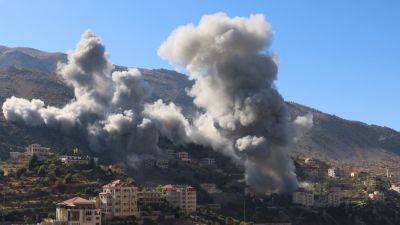How Canada and other countries are planning Lebanon evacuations
Western nations are updating contingency plans for organizing evacuations from Lebanon after a sharp escalation in border warfare between Israel and the Lebanese armed movement Hezbollah.
Cyprus, the closest European Union member state to the Middle East, is a likely hub, having processed around 60,000 people fleeing the Hezbollah-Israel war in 2006.
Neighbouring Turkey has offered facilities as well.
No country has activated a large-scale military evacuation yet, though some are chartering aircraft to assist in their nationals leaving as Beirut airport remains open. There have also been plans to evacuate by sea to Cyprus, enabling the movement of larger groups of people at a time.
Here are details on contingency planning:
Authorities have made contingency plans that could include evacuation by sea, though it has urged an estimated 15,000 of its citizens in Lebanon to leave while Beirut airport remains open.
News reports from Canada suggest it will cooperate with Australia in evacuating nationals by sea. The plan involves contracting a commercial vessel to transport 1,000 people out each day.
The Canadian government on Friday began coordinating commercially assisted departures for Canadians looking to get out of Lebanon, Global News has learned.
Global Affairs Canada is reserving blocks of seats on commercial flights for Canadian citizens as it becomes increasingly difficult to book seats independently, sources in two government departments said.
France, which has been urging citizens not to travel to Lebanon, has had evacuation plans in place for several months but has not issued an evacuation order. Present contingency plans centre around Cyprus and Beirut airport, while it is also discussing evacuations via Turkey. France has







